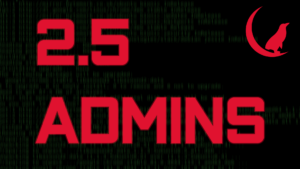
 2.5 Admins
2.5 Admins 2.5 Admins 225: Kinetic Response
Dec 12, 2024
The urgent need for secure messaging apps is underscored as traditional SMS vulnerabilities rise. Cybersecurity threats in the healthcare sector reveal alarming risks, potentially fueling military responses. A controversial QNAP firmware update leaves many NAS users locked out, prompting a look at best practices in software development. Additionally, the intricacies of securing self-hosted applications are compared, highlighting mutual TLS and alternative solutions like WireGuard.
AI Snips
Chapters
Transcript
Episode notes
Ditch SMS for Secure Messaging
- Stop using SMS for important communication due to security and reliability issues.
- Consider more secure alternatives like Signal, especially given FBI warnings.
Feds Advocate Encryption
- The FBI and CISA advise using encrypted messaging apps like Signal.
- This contradicts their usual stance against end-to-end encryption, highlighting the seriousness of the threat.
Secure Healthcare with MFA and Encryption
- Mandate multi-factor authentication (MFA) and encryption in healthcare.
- This is crucial to prevent ransomware attacks and protect sensitive patient data.

